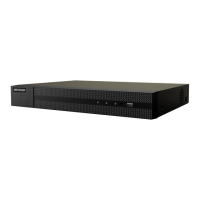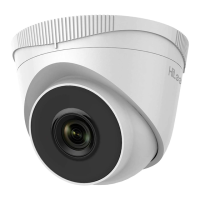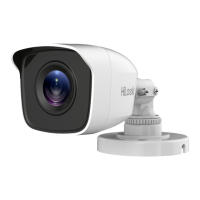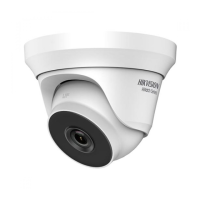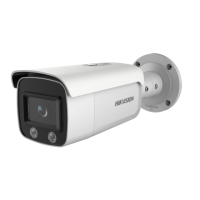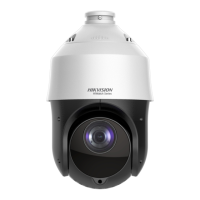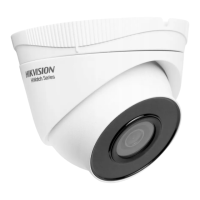
Do you have a question about the HIKVISION HiWatch HWI-T240H and is the answer not in the manual?
| Brand | HIKVISION |
|---|---|
| Model | HiWatch HWI-T240H |
| Category | Security Camera |
| Language | English |
Specifies required operating systems for the camera software.
Details the minimum CPU processing power needed.
Outlines the necessary RAM capacity for operation.
Sets the minimum display resolution for optimal viewing.
Lists compatible web browsers and their minimum required versions.
Configures camera connection using a Local Area Network.
Explains the physical network cabling for connecting the camera via LAN.
Guides through the initial activation process for the network camera.
Sets up security questions for password recovery during camera activation.
Configures camera connection using a Wide Area Network (WAN).
Details how to connect the camera using a static IP address over WAN.
Explains how to connect the camera using a dynamic IP address over WAN.
How to access and manage the camera using a web browser interface.
How to access and manage the camera using dedicated client software.
Sets up Wi-Fi connectivity in Manage and Ad-hoc network modes.
Simplifies Wi-Fi setup using the Wi-Fi Protected Setup (WPS) function.
Configures IP properties like address and subnet mask for wireless connections.
Explains the layout and components of the live view page.
Steps to initiate live video streaming and begin viewing.
How to manually record video clips and capture still images from the live view.
Controls camera pan, tilt, zoom, and other functions.
Details the interface for controlling PTZ functions like zoom and focus.
How to save and recall specific camera positions or configure patrol routes.
Sets local parameters for live view, recordings, and captured pictures.
Manages core system settings like device information and time synchronization.
Sets up device name, model, serial number, and firmware version.
Configures time synchronization with NTP and Daylight Saving Time.
Sets up RS232 and RS485 serial ports for communication and control.
Controls connected external devices such as LED lights and wipers.
Allocates resources for Video Content Analysis (VCA) functions.
Manages firmware upgrades, system restore, and log management.
Handles firmware updates, system restore, and configuration file export/import.
Manages and exports system logs for troubleshooting and auditing purposes.
Configures camera services like Auto Back Focus and third stream capabilities.
Secures the camera through authentication, IP filtering, and user access controls.
Sets up authentication methods (RTSP/WEB) for securing live video streams.
Controls network access by defining allowed or forbidden IP addresses.
Enables services like illegal login lock for enhanced remote access security.
Manages user accounts, permissions, and online user status.
Adds, modifies, deletes, and manages user accounts and their permissions.
Sets up security questions for password recovery procedures.
Views a list of currently logged-in users and their activity.
Configures fundamental network parameters like TCP/IP, DDNS, and PPPoE.
Sets up IP address, subnet mask, gateway, DNS server, and MTU.
Configures Dynamic DNS for remote access using domain names.
Sets up PPPoE for establishing an internet connection via DSL.
Manages network ports for camera access (HTTP, RTSP, HTTPS, etc.).
Configures Network Address Translation and Universal Plug and Play for network connectivity.
Configures advanced network features and protocols.
Configures Simple Network Management Protocol for device monitoring and management.
Configures FTP server settings for uploading captured images and files.
Configures email alerts for detected events like motion or alarms.
Configures access to cloud platforms or mobile applications for device management.
Configures 3G/4G wireless dial-up network connections for data transfer.
Configures secure HTTPS access to the camera interface for encrypted communication.
Configures Quality of Service to prioritize network traffic for better performance.
Configures IEEE 802.1X for network access authentication and security.
Configures CGI and ONVIF protocols for integration with third-party platforms.
Optimizes video stream performance based on available network bandwidth.
Manages network services like WebSocket and WebSockets for live view functionality.
Configures parameters for main, sub, and custom video streams.
Details settings for stream type, resolution, bitrate, video quality, and encoding.
Configures audio input, encoding format, and volume settings.
Sets up Region of Interest encoding to enhance specific video areas' quality.
Adjusts image parameters like brightness, contrast, saturation, sharpness, and exposure settings.
Configures automatic or scheduled switching between day and night camera modes.
Sets scheduled day/night mode switching based on specific time intervals.
Customizes camera name, time/date format, and other OSD elements on the live view.
Masks specific areas of the video feed to prevent viewing or recording.
Overlays custom images or logos onto the video stream for branding or identification.
Configures fundamental alarm events like motion detection, video tampering, and exceptions.
Sets up motion detection areas, sensitivity, arming schedules, and linkage methods.
Triggers an alarm if the camera's video feed is obscured or tampered with.
Configures external alarm inputs and outputs for event triggers and actions.
Manages system exceptions (e.g., HDD full, network disconnected) as alarm events.
Configures wireless, PIR, and emergency alarms for comprehensive security monitoring.
Configures advanced event detection features like audio exceptions, defocus, and scene changes.
Detects abnormal sound patterns or audio loss within the surveillance scene.
Detects when the camera lens becomes unfocused, triggering an alarm.
Detects unexpected changes in the camera's view, such as tampering or repositioning.
Detects and analyzes faces appearing in the video feed, including optional dynamic analysis.
Detects objects entering/exiting regions or crossing defined lines for perimeter security.
Detects entry, exit, unattended objects, or object removal from defined regions.
Configures Video Content Analysis (VCA) features and rules.
Configures specific rules for behavior analysis like intrusion, line crossing, and region events.
Configures settings for capturing facial data, including analysis parameters and ROI.
Configures the system to count people entering or exiting areas, with calibration options.
Configures display and upload of counting data, including OSD overlay and real-time upload.
Configures heat map generation for visitor dwell time and movement patterns.
Configures vehicle and traffic detection for road monitoring, including license plate capture.
Sets schedules for continuous, motion-triggered, or alarm-triggered video recording.
Configures schedules for taking continuous or event-triggered snapshots.
Configures network drives (NAS) for storing recorded files and images.
Monitors memory card health, lifespan, and applies read/write locks for data protection.
Optimizes storage time by reducing video stream bitrate and frame rate when no motion is detected.
Explains how to navigate and control the video playback interface to review recorded footage.
Describes how to search, view, and download recorded pictures from storage.
Analyzes and displays captured face data in various charts and reports.
Analyzes and displays people counting statistics in different formats and reports.
Analyzes and displays heat map data for visitor dwell time and movement patterns.
Analyzes and displays general counting data from the application tab.
Provides an overview and usage guide for the SADP device search and configuration tool.
Explains automatic and manual methods for finding active network devices on the subnet.
Details how to change device IP address, port, and other network settings using SADP.
Provides instructions for port mapping on a TP-LINK router for enabling remote network access.


